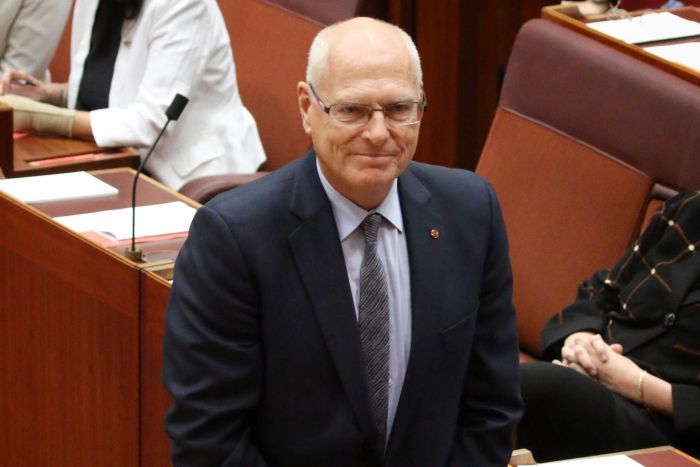By Robbin Laird
During my current visit to Canberra in support of the Williams Foundation seminar which will focus on enhanced sustainability for Australian defense efforts, it is not surprising that I have been talking with Australians about how to do so.
It is clear that as we address the challenges posed by the 21stcentury authoritarian powers shaping resiliency in our societies is crucial.
And this means a priority focus on shaping more secure infrastructures able to sustain defense capabilities through a sustained crisis period.
I had a chance to visit Senator Jim Molan in his office at Parliament House the day before the introduction of the budget. In spite of a busy schedule, a leader in Parliament on defense issues, Jim Molan wished to discuss the need for a national security strategy for Australia.
To be clear, Australia has put in motion significant force transformation, a process which will yield a more capable force to shape, operate in and execute a kill web approach.
As important as this is, there is a need for more than a defense strategy focused on force structure modernization.
There is a need for a broader national security strategy which embraces key issues such as energy security, resilient communications and IT networks.
According to Molan: “The world has changed. Our approach has been to contribute to the American-led alliance.
“We are strong allies but the American place in the world has changed with the rise of China. We need to do more.
“We need to be an anchor to the alliance working with the US and Japan in forging enhanced deterrent capabilities.
“This means not only do we need to invest more but we need to do it such a way that Australia is a more robust and sustainable society.
“We are in the throes of major new infrastructure investments but we need to fold security considerations into our infrastructure modernization.
“How do we ensure that our infrastructure is robust and sustainable against the intrusions of powers like China and Russia?
“This is a key capability which needs to be built into our national security efforts and needs a national security strategy.”
Molan described how the situation is changing in Australia.
He noted that the Parliamentary Joint Committee on Intelligence and Security has worked on a bipartisan effort to enhance significantly Australia’s counter terrorism efforts.
“We are taking internal counter-terrorism security very seriously and have passed a number of bills strengthening the approach of government to this challenge.
“Now that we have achieved this, we now need to broaden the effort to shape and put in place a broader national security strategy, which would subsume a number of challenges on infrastructure of the sort we talked about earlier in our discussion.”
“The Australian government does not know, and cannot say what war it is preparing for. And this is a real problem in terms of where you put your effort and where you need to get results.
“Clearly, with what the Chinese are doing to intrude into the lives of Australians we need a range of security capabilities, ranging from liquid fuel security, financial security, bank security, government decision making processes and security, cyber security and so on.
“These are not separate challenges but part of what needs to be addressed as a government wide national security strategy.”
“We are investing more than 70 billion Australian dollars into infrastructure but there is no security perspective guiding the effort. This makes no sense.”
Senator Molan then described a crucial area to guide economic development from a national security perspective, namely foreign investment.
“We have a foreign investment review board, which answers to the treasury of the country, and the treasurer makes the final decision about all foreign investment above a certain level goes through the foreign investment review board must be approved by them and to determine whether the investment is in the interest of this country before it is approved.
“The failure of the system was indicated by the decision to lease the Port of Darwin management to the Chinese a couple of years ago with no real consideration of the security implications for Australia.
“This makes no sense.
“We have now attached to the foreign investment review board, a critical infrastructure commission, which is headed by the ex-head of our security and intelligence organization, whose only job is to make an assessment, or a recommendation, as to where a proposed investment fits in the national security world.
“It is a beginning but we need to shape a more comprehensive national security strategic approach to infrastructure investments and foreign direct investment overall.”
“The answer is for this country to get itself squared away with regard to its overall resilience in its core infrastructure.”
For earlier interviews with Jim Molan:
The Challenges Facing Australian Defense: The Perspective of Senator Jim Molan
Shaping a 21st Century Australian Defense: Major General (Retired) Jim Molan Looks at the Challenges
Meeting the Challenge of Preparing for Future Conflicts: An Aussie Perspective


